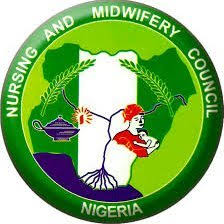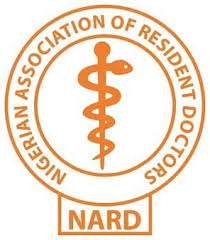LOCAL MEDICINES' MANUFACTURING, GOVERNMENT POLICIES AND ACCESS TO HEALTHCARE IN NIGERIA.
PREAMBLE: The misconceptions following recent laudable Government policies have necessitated the release of this statement. The Pharmaceutical Manufacturers Group of the Manufacturers Association of Nigeria (PMG-MAN) is the umbrella body of over 120 local medicines' manufacturers who are committed to ensuring that Nigerians continue to have sustainable access to high quality and affordable medicines. In releasing this statement, we believe that Nigerians would gain a better appreciation of issues constituting a threat to affordable access to healthcare and the policies Government is putting in place to address them.
ECOWAS COMMON EXTERNAL TARIFF (CET)
The ECOWAS Common External Tariff (CET) is an instrument designed to harmonise trade among Member States. While the adoption of the CET is expected to strengthen the Regional Market and facilitate trade, it also exposes the Region to certain risks, such as dumping. Dumping refers to a scenario where policies favour importation over local manufacturing especially where there is evidence that manufacturing capacity exists in that setting. Risks associated with dumping include: insecure access to medicines due to dependence on importation; lack of capacity to develop contextual solutions to health issues; widespread job losses and pervasive unemployment; and exposure to high levels of faking and counterfeiting.
 During the adoption of the CET, it emerged that there was an erroneous implementation with respect to Pharmaceuticals and related products. Following adoption, finished imported pharmaceutical products attracted 0% duty, whilst raw materials and packaging materials for local manufacturing attracted up to 20% duty. Apart from triggering dumping, this situation spelt doom for the Nigerian Pharmaceutical Manufacturing Sector.
During the adoption of the CET, it emerged that there was an erroneous implementation with respect to Pharmaceuticals and related products. Following adoption, finished imported pharmaceutical products attracted 0% duty, whilst raw materials and packaging materials for local manufacturing attracted up to 20% duty. Apart from triggering dumping, this situation spelt doom for the Nigerian Pharmaceutical Manufacturing Sector. At the ECOWAS Regional level, the need to correct this imbalance against local manufacturing has been acknowledged, and measures are now being put in place to ensure the correction. However, embedded within the CET are several mechanisms which individual Countries can employ to address any imbalances perceived as a threat to the livelihood of Citizens. One such mechanism is the ImportAdjustment Tax (IAT).
GOVERNMENT POLICIES TO ENSURE SUSTAINABLE ACCESS TO MEDICINES
In a recent circular, the Federal Government released the 2016 Fiscal Policy, where an IAT of 20% was placed on four groups of finished imported medicines in HS Code 3004. These comprise medicines where there is more than an adequate local manufacturing capacity to meet the demand for such medicines. This measure was taken as part of the Government's strategy to ensure sustainable access to high quality, affordable medicines for the citizenry, while still stimulating economic growth and development of key sectors.
It is important to note here, that the items included in the circular were not selected at random. An enormous amount of work was undertaken by the appropriate Government Ministries and Agencies to arrive at this list. Following the relevant audit and analyses, Government subsequently approved an IAT of 20% on FOUR categories of products. These were categories where there is incontrovertible evidence that Local Manufacturers have capacity. It is worthy of note that Pharmaceuticals are included in a significant number of subdivisions but only medicines in four categories of one subdivision (30.04) were included for 20% IAT. For instance, Insulin (HS Code 3004.3100.00) was left at 0% import duty, since there is currently little or no capacity to produce this item locally.
REACTIONS TO THE POLICY
Our attention has been drawn to some publications, notably from companies engaging in importation of pharmaceuticals. We now wish to use this release to provide the relevant answers to some common questions that might arise from this policy.
FREQUENTLY ASKED QUESTIONS (FAQS)
Q1: Is there enough local capacity for the medicines captured in the 2016 Fiscal Policy?
A1: Nigerian Local Manufacturers have more than enough capacity to supply medicines in the FOUR categories listed in the 2016 Fiscal Policy. In fact, almost a decade ago (2008)the Presidential Committee on Pharmaceutical Sector Reform undertook a nationwide assessment of installed and utilised capacity of Local Drug Manufacturing Companies and found that our existing capacity was actually underutilised. The report collated and authored by the Federal Ministry of Health further recommended an upward review of medicines that should no longer be imported since evidence indicated they could be manufactured locally (Import Prohibition List). It has been ten years since that study and there are now twice as many Nigerian companies manufacturing medicines, compared to back then. The exponential increase in local installed capacity means that the upward review of the Import Prohibition List is now both urgent and important.
Q2: Is the current high cost of medicines as a result of the 2016 Fiscal Policy?
A2: No it is not. The high cost of medicines is due to the current FOREX scarcity. This means that both Local Manufacturers and Importers have little access to FOREX at official rate to import machineries, raw materials and finished products.
Nevertheless, due to considerable local input in the medicines' production value chain, Local Manufacturers have been able to sustain a relatively stable pricing regime for essential medicines. For instance, locally manufactured Anti-Malarials are still about half the price of Imported Brands. This can be verified in any Pharmacy outlet.
Q2: How will the 2016 Fiscal Policy impact National Development?
A2: PMG MAN members presently engage over 500,000 Nigerians in direct and indirect employment. Pharma manufacturing has one huge job creating value chain and can deliver over 1 million jobs in the next four years if the right policy environment is in place. If government reverses the current Fiscal Policy, most Pharma companies that produce items on the CET list would have no option but to close shop and revert to importation. Job losses will be massive, cost of medicines will skyrocket and Nigerians will be exposed to more health and economic risks.
Q3: Should Nigeria continue to depend on importation of medicines to the tune of 85% as asserted by the Importers?
A3: We believe that any country that cannot determine how its medicines are made is a disaster waiting to happen. The Ebola experience where Nigeria and Nigerians were refused medicines should be a lesson to anyone who wants to depend on other countries for critical issues such as access to medicines. A core objective of Nigeria's National Drug Policy which was adopted in 2005 was therefore to ensure that over 70% of drugs used in Nigeria are produced locally. This was a major incentive to local manufacturing until the adoption of CET which devastated the Pharma Sector. The recent Fiscal Policy now seeks to reverse this trend, by instituting similar measures that enabled Countries like India, Bangladesh and Thailand become self-sufficient and even net exporters of pharmaceuticals. All patriotic Nigerians and those who live in Nigeria must support right Government policies that seek to protect Citizens and Residents against narrow personal or sectional interests. Indeed, Nigeria with about 50% of all Pharma plants in sub-Saharan Africa stands to be a manufacturing hub for the entire Region, if the relevant support is provided.
Q4: How can a Citizen support Medicines' Security and National Self-Sufficiency for Medicines in Nigeria?
A4: Citizens and Residents of Nigeria can support National Medicines' Security. To enable the Country become self-sufficient, it is imperative that we all patronise made-in-Nigeria medicines. While buying these products, it is important to verify the manufacturer by checking the label.
Q5: Can current importers of medicines manufacture most of these products in Nigeria?
A5: Yes importers of pharmaceutical products can manufacture locally, in fact the former Director General - late Professor Dora Akunyili initiated a policy whereby once a pharmaceutical product has been registered for 10 years, the importer of that product MUST begin to manufacture locally. Under her tenure at NAFDAC, this policy was vigorously pursued because she believed that having made profit for 10 years, importers should now bring their technical partners to Nigeria, so that more jobs can be created for Nigerians and local technical expertise can also be increased.
CONCLUSION In line with our strategy for Medicines' Security and National Self-Sufficiency, PMG-MAN wishes to confirm our continued commitment to ensuring that Nigerians have sustainable access to high quality and affordable medicines. We will also be unrelenting in our partnership with Government, relevant stakeholders and all well-meaning Nigerians in our facilitation of National development and the creation ofjobs for Nigerians.
Pharm. S. Okey Akpa FPSN,FNAPharm,FNIM Chairman PMG-MAN MD/CEO SKGPharma Ltd
Dr Fidelis Ayebae First Vice Chairman PMG-MAN Group MD/CEO Fidson Healthcare Plc
Dr Obi Peter Adigwe M.Sc (Edinburgh) Ph.D (Leeds) Executive Secretary PMG-MAN
Mr Varkey Verghese MFR Second Vice Chairman PMG-MAN MD, Jawa Group of Companies
Brig Gen (Pharm) M.A. Abdullahi FPCPharm MD, NASDMU
Pharm OlakunIe Ekundayo FPSN, FNAPharm MD/CEO, Drugfield Pharmaceuticals Limited
ABUJA: Training Schedule for Basic Life Support BLS, Pediatric Advanced Life Support (PALS), Advanced Cardiovascular Life Support ACLS, First Aid, CPR, AED
PORTHARCOURT: Training Schedule for Basic Life Support BLS, Pediatric Advanced Life Support (PALS), Advanced Cardiovascular Life Support ACLS, First Aid, CPR, AED
LAGOS: Training Schedule for Basic Life Support BLS, Pediatric Advanced Life Support (PALS), Advanced Cardiovascular Life Support ACLS, First Aid, CPR, AED




